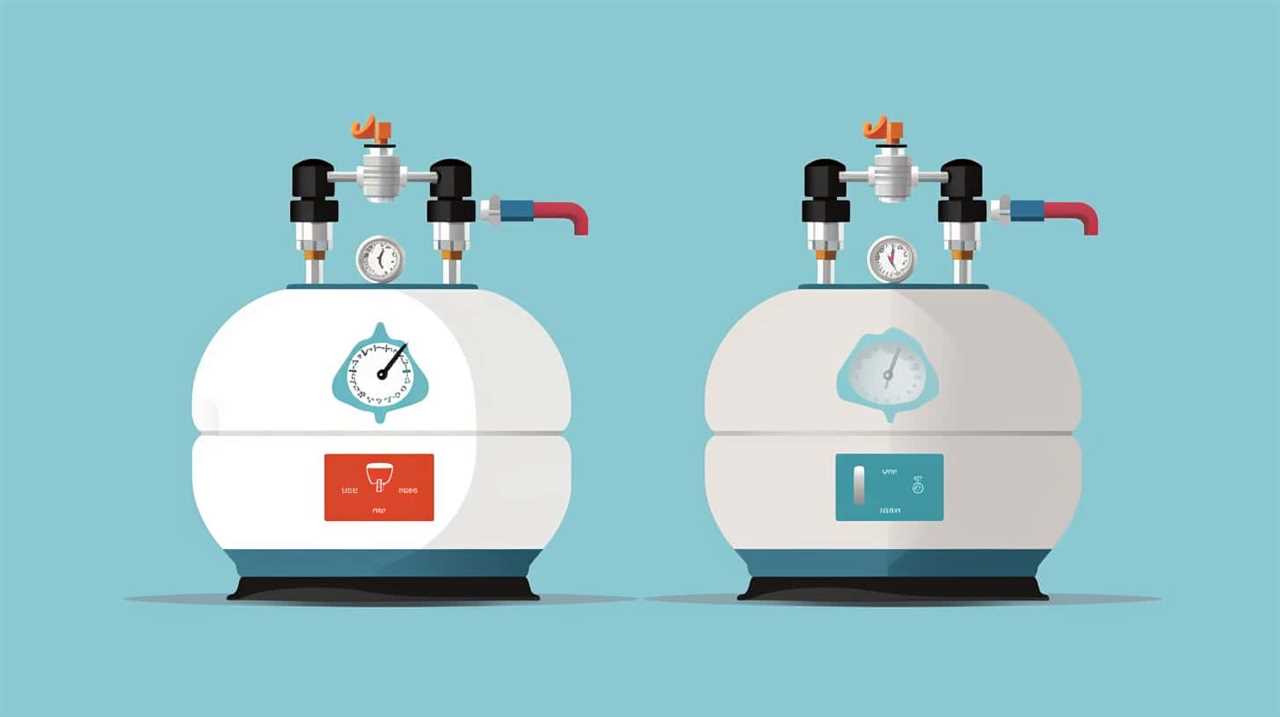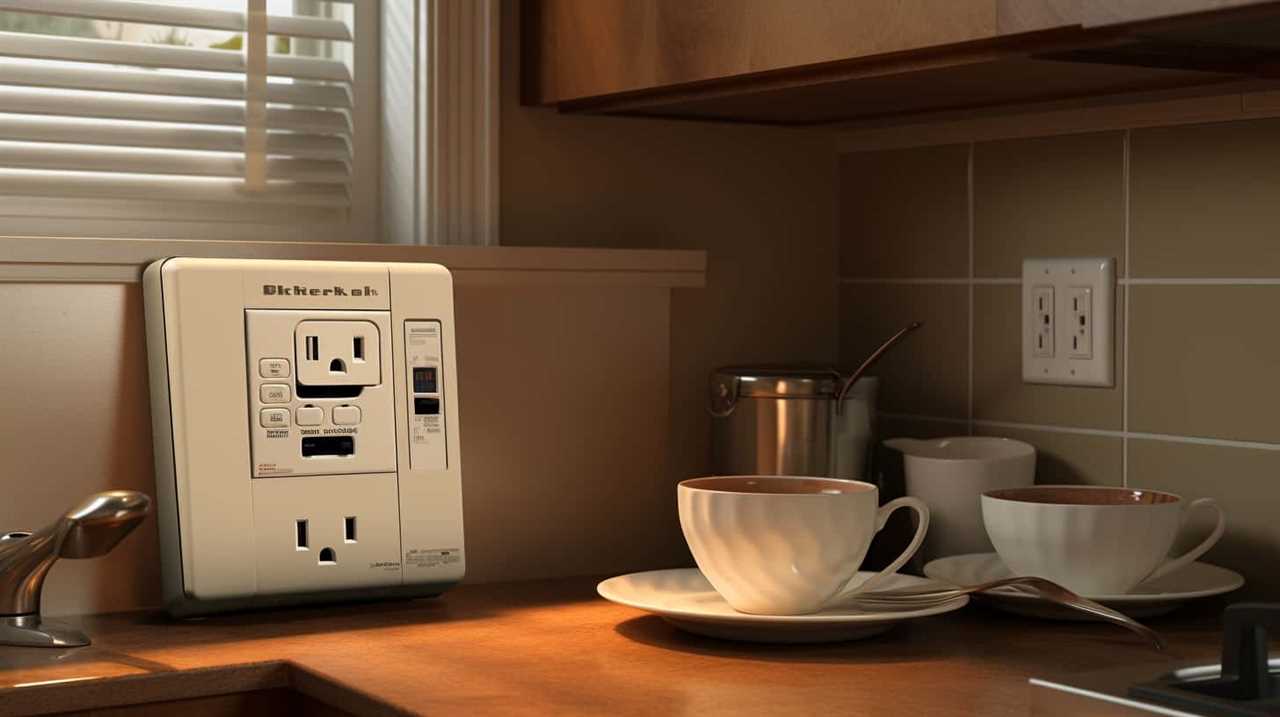In today’s fast-paced world, with technology being a crucial aspect of our daily lives, it is crucial to recognize the significance of unplugging appliances when they are not being utilized. This habit is not just about convenience but also offers numerous advantages that extend beyond just saving time and energy.
Energy conservation, preventing electrical fires, extending device lifespan, reducing electricity bills, minimizing standby power consumption, and promoting home safety are just a few of the reasons why unplugging appliances should be a priority for those seeking mastery in managing their household.
Additionally, this practice contributes to reducing our environmental impact, avoiding damage during power outages, and improving overall appliance efficiency. By adopting this simple habit, we can make a positive impact on both our personal lives and the world around us.
Key Takeaways
- Reduces electricity consumption
- Prevents electrical fires and promotes home safety
- Extends device lifespan and improves overall appliance efficiency
- Reduces electricity bills
Energy Conservation
Energy conservation is a critical aspect of reducing electricity consumption and minimizing environmental impact. By adopting energy saving tips and actively working towards reducing energy consumption, individuals and businesses can play a significant role in preserving our planet’s resources.
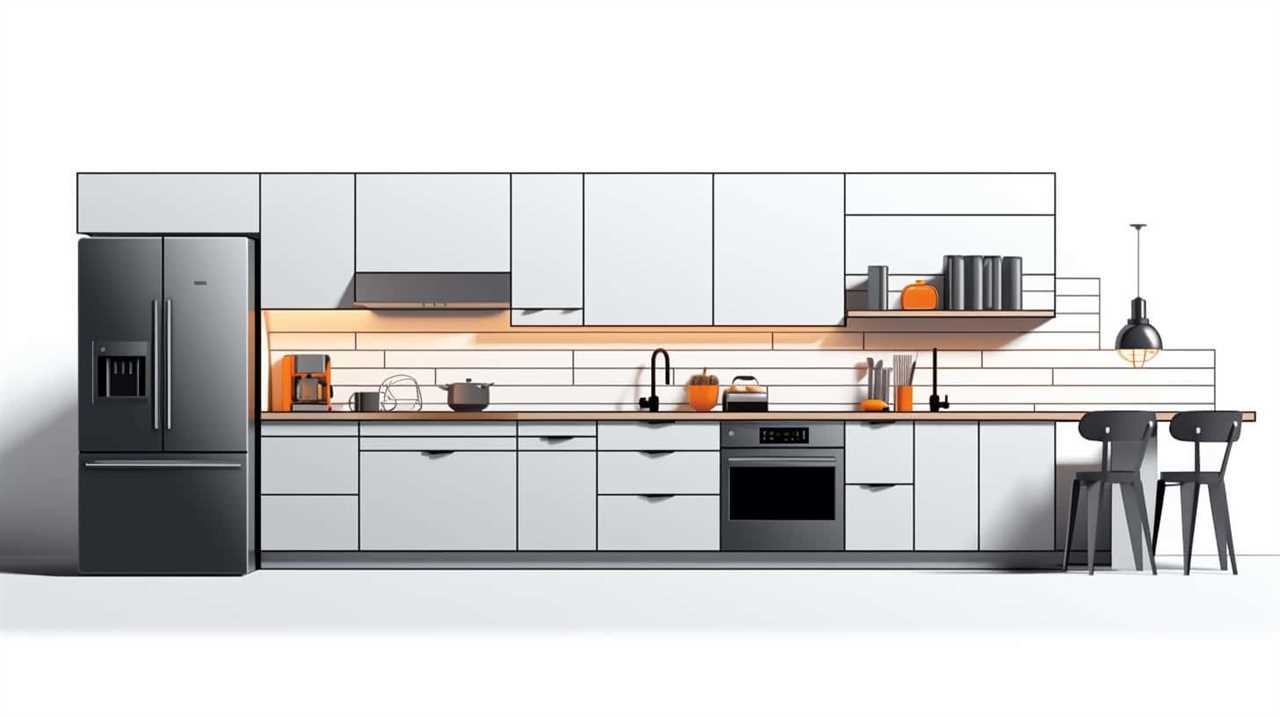
Implementing simple measures such as turning off lights when not in use, using energy-efficient appliances, and unplugging electronics when not in use can make a substantial difference in energy consumption. Additionally, adjusting thermostats to conserve energy and utilizing natural light during the day can further contribute to energy conservation efforts.
Preventing Electrical Fires
Preventing electrical fires is a crucial aspect of ensuring home safety. Unplugging appliances when they are not in use is an effective way to eliminate the risk of fire caused by electrical malfunctions.
Unplugged Appliances Prevent Fires
Unplugged appliances significantly reduce the risk of electrical fires. By unplugging appliances when not in use, you can prevent accidents and promote safety in your home. Here are five reasons why unplugged appliances prevent fires:
- Eliminates the risk of electrical malfunctions: Unplugging appliances reduces the chances of short circuits or faulty wiring that can lead to fires.
- Prevents overheating: Leaving appliances plugged in can cause them to overheat, increasing the risk of fire.
- Reduces energy waste: Appliances continue to draw power even when not in use, leading to wasted energy and potentially overheating.
- Minimizes the risk of electrical sparks: Unplugging appliances prevents the occurrence of sparks that could ignite flammable materials nearby.
- Promotes fire safety: By unplugging appliances, you create a safer environment for you and your family, reducing the risk of fire-related injuries or fatalities.
Electrical Safety Through Unplugging
Enhancing electrical safety can be achieved by adopting the practice of unplugging appliances when not in use. This simple action can help prevent electrical hazards, including the risk of electrical fires.

Safety precautions should always be a priority when it comes to electrical devices. When appliances are left plugged in, they continue to draw energy, which can lead to overheating and potential fire hazards. By unplugging appliances when not in use, you eliminate this risk and ensure the safety of your home or workplace.
It is important to educate yourself and others about the dangers of leaving appliances plugged in and to develop a habit of unplugging them to prevent electrical hazards and fires.
Extending Device Lifespan
Extending the lifespan of our devices is crucial for both our wallets and the environment. By unplugging appliances when not in use, we can enjoy the energy-saving benefits that come with it.
This not only reduces our electricity bills but also prevents electrical malfunctions and reduces fire hazards, ensuring that our devices last longer and operate safely.
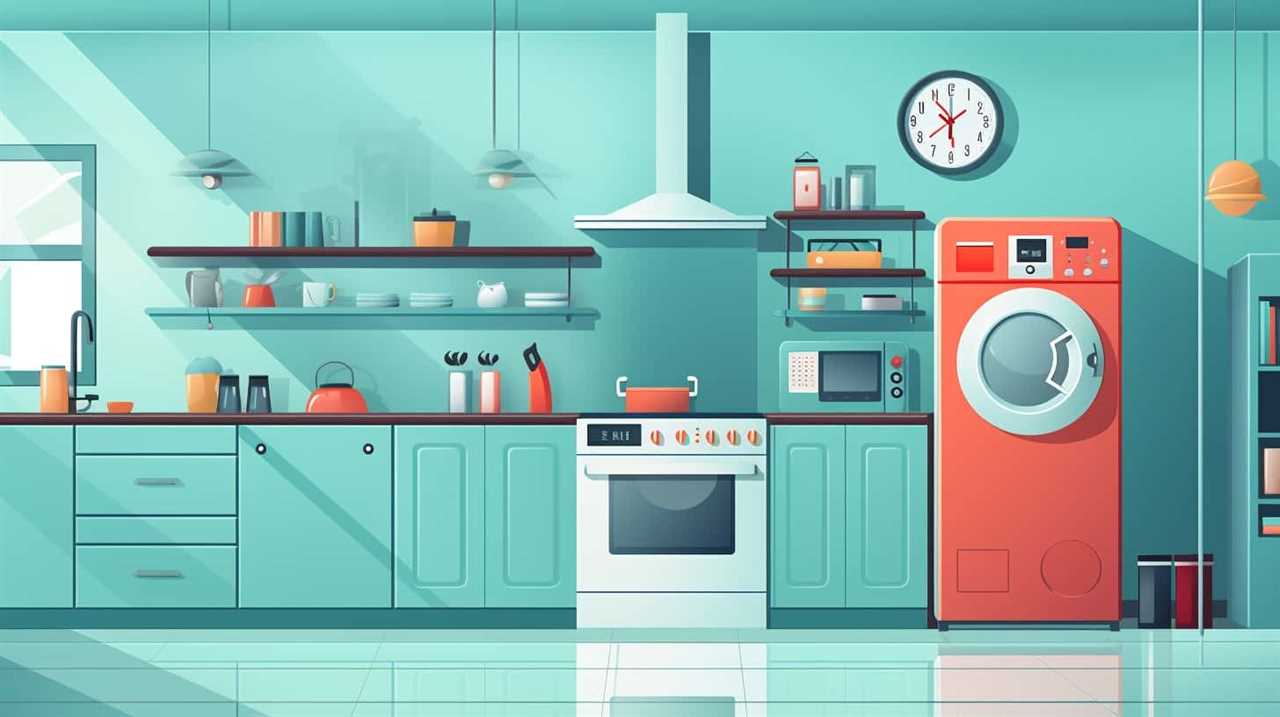
Energy-Saving Benefits
Regularly disconnecting appliances from power sources can help conserve energy and prolong the lifespan of devices. By adopting this simple habit, you can enjoy several energy-saving benefits and reduce your overall energy consumption.
Here are some key advantages of unplugging appliances:
- Minimizes standby power consumption: Many devices continue to use energy even when turned off, known as standby power. Unplugging appliances eliminates this unnecessary energy drain.
- Reduces phantom loads: Phantom loads occur when electronics consume energy even in standby mode. Disconnecting appliances prevents phantom loads, saving you money on your energy bills.
- Avoids power surges: Unplugging appliances during storms or power outages protects them from power surges, which can damage sensitive electronic components.
- Extends device lifespan: Continuous power supply can cause wear and tear on appliances. Disconnecting them when not in use helps extend their lifespan, reducing the need for frequent replacements.
- Promotes a greener lifestyle: By reducing energy consumption, you contribute to a more sustainable environment and help combat climate change.
Incorporating these energy-saving tips into your daily routine can make a significant difference in both your energy bills and the longevity of your devices.
Preventing Electrical Malfunctions
To prevent electrical malfunctions and prolong the lifespan of your devices, it is important to adopt the habit of disconnecting appliances from power sources. Not only does this practice prevent equipment failures, but it also increases energy efficiency, saving you money on your electricity bills. By unplugging appliances when they are not in use, you reduce the risk of power surges and electrical short circuits, which can cause damage to the internal components of your devices. Additionally, disconnecting appliances from power sources helps to prevent overheating, which is a common cause of equipment failure. By taking this simple step, you can extend the lifespan of your devices and ensure that they continue to function optimally for years to come.

| Preventing Equipment Failures | Increasing Energy Efficiency |
|---|---|
| Reduces risk of power surges | Saves money on electricity |
| Prevents electrical short circuits | Reduces energy consumption |
| Minimizes risk of overheating | Prolongs device lifespan |
| Protects internal components | Contributes to sustainability |
| Ensures optimal device performance | Reduces environmental impact |
Reducing Fire Hazards
By reducing the risk of fire hazards, the practice of unplugging appliances from power sources can significantly extend the lifespan of your devices. Fire prevention should be a top priority when it comes to electrical safety precautions. Here are five reasons why unplugging appliances can help reduce fire hazards and ensure the longevity of your devices:
- Eliminates the risk of overheating due to faulty wiring or electrical shorts.
- Prevents power surges that can damage internal components and increase the risk of fire.
- Reduces the chance of electrical sparks that can ignite flammable materials.
- Minimizes the risk of electrical fires caused by appliances left unattended.
- Protects against power outages and voltage fluctuations that can damage sensitive circuits.
Reducing Electricity Bills
One effective way to reduce electricity bills is through the practice of unplugging appliances when not in use. By doing so, you can save money and promote sustainability.
Many appliances continue to draw power even when they are turned off, known as ‘phantom power’ or ‘standby power.’ This can account for a significant portion of your energy consumption. Unplugging appliances, such as televisions, computers, and chargers, can eliminate this wasteful energy usage.
Additionally, unplugging appliances reduces the risk of power surges and potential damage to your devices. Developing the habit of unplugging appliances when not in use can lead to substantial savings on your electricity bills and contribute to a more sustainable future.
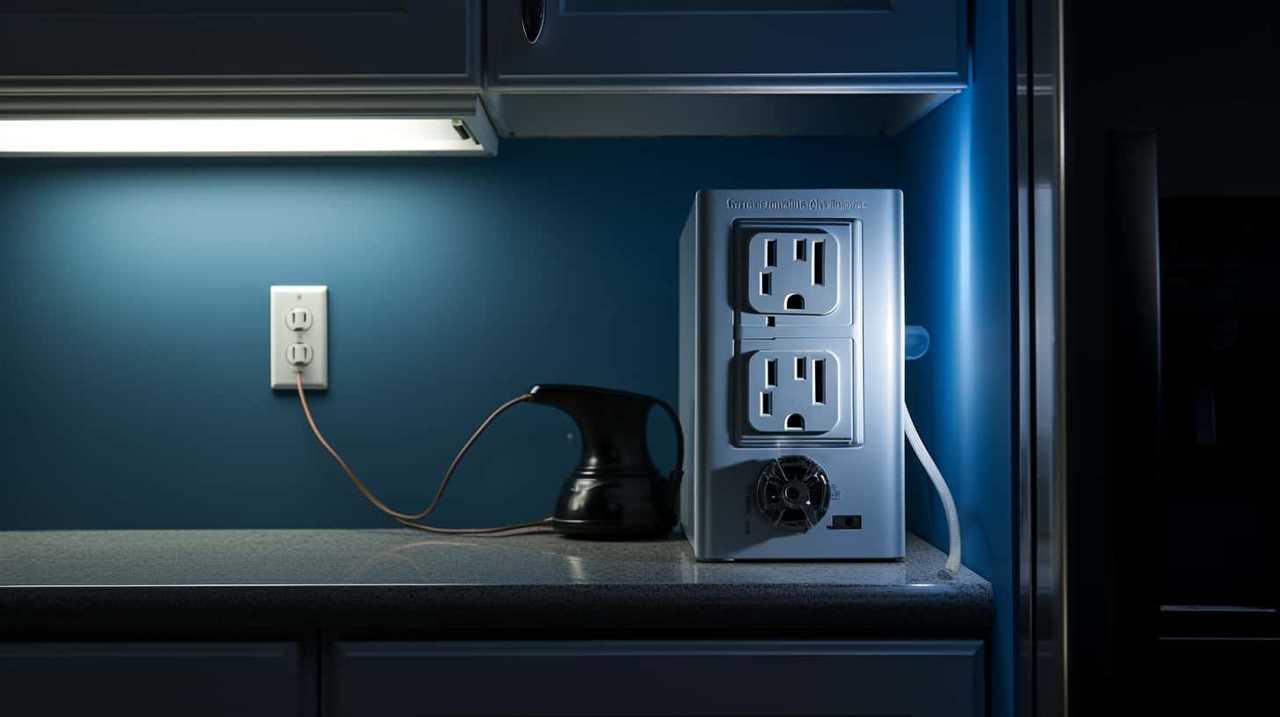
Environmental Impact
Unplugging appliances when they are not in use has significant environmental benefits. By conserving energy, we can reduce our carbon footprint and contribute to the fight against climate change.
This simple action can make a big difference in preserving our planet for future generations.
Energy Conservation Benefits
Using a quantifier determiner, it is evident that reducing energy consumption by unplugging appliances has significant environmental benefits. By adopting energy saving tips and finding ways to conserve electricity, we can make a substantial impact on the environment.
Here are five key benefits of energy conservation:

- Reduced greenhouse gas emissions: Unplugging appliances helps decrease the demand for electricity, which in turn reduces the burning of fossil fuels, leading to lower greenhouse gas emissions.
- Conservation of natural resources: By using less electricity, we minimize the need for power plants that rely on non-renewable resources like coal and natural gas, preserving these valuable resources for future generations.
- Decreased air pollution: Power plants emit pollutants like sulfur dioxide and nitrogen oxides. By using less electricity, we can reduce the need for these plants, resulting in improved air quality.
- Preservation of ecosystems: Energy production can harm ecosystems through activities like mining and drilling. By consuming less electricity, we reduce the need for these destructive practices, helping to protect fragile ecosystems.
- Mitigation of climate change: By conserving energy, we contribute to the global effort of mitigating climate change by reducing the release of greenhouse gases, which are the primary drivers of global warming.
Reducing Carbon Footprint
Reducing energy consumption by unplugging appliances contributes to a lower carbon footprint, thereby minimizing the environmental impact of electricity usage. By reducing greenhouse gas emissions associated with electricity generation, we can work towards a more sustainable living.
When appliances are left plugged in, they continue to draw power even when not in use, resulting in unnecessary energy usage and increased carbon emissions. Unplugging appliances when not in use is a simple yet effective way to conserve energy and reduce our environmental impact. This small action can make a significant difference in reducing our carbon footprint and combating climate change. By adopting this practice, we can actively contribute to a more sustainable future.
Now, let’s explore another important reason to unplug our appliances: protecting against power surges.
Protecting Against Power Surges
To safeguard your appliances from potential damage, it is vital to implement effective measures for power surge protection. Power surges can occur due to lightning strikes, faulty wiring, or grid disturbances, and can lead to costly equipment damage or even complete failure.
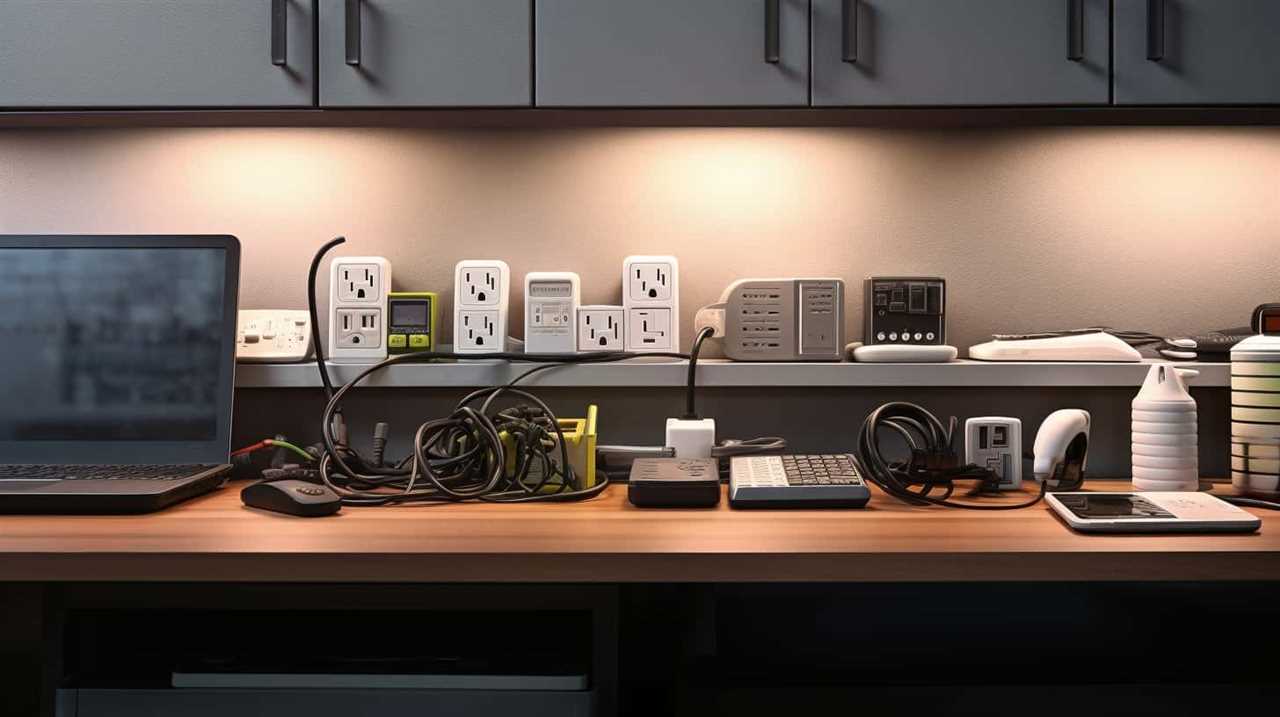
Here are five essential steps you can take to protect against power surges:
- Install surge protectors: These devices divert excess voltage away from your appliances, ensuring they receive only the required power.
- Unplug during storms: Lightning strikes can cause power surges, so it’s best to unplug sensitive electronics during thunderstorms.
- Use voltage stabilizers: These devices regulate voltage fluctuations and provide a stable power supply to your appliances.
- Inspect and maintain wiring: Faulty wiring can increase the risk of power surges, so have a professional inspect and repair any issues.
- Invest in whole-house surge protection: This system protects your entire home from power surges, offering comprehensive protection for all your appliances.
Promoting Home Safety
To ensure optimal home safety, it is imperative to prioritize the proper maintenance and regular inspection of electrical systems. Promoting awareness and educating homeowners about the importance of home safety is crucial in preventing electrical accidents and reducing the risk of fire, electrocution, and property damage.
Homeowners should be encouraged to conduct routine checks on their electrical systems, including checking for any signs of wear and tear, loose connections, or frayed wires. It is also essential to remind homeowners to hire qualified electricians for any repairs or installations to ensure compliance with safety standards.
In addition, educating homeowners about the proper use and storage of electrical appliances and cords can help prevent accidents caused by misuse or overload. By promoting home safety and providing homeowners with the necessary knowledge and resources, we can create a safer environment for everyone.
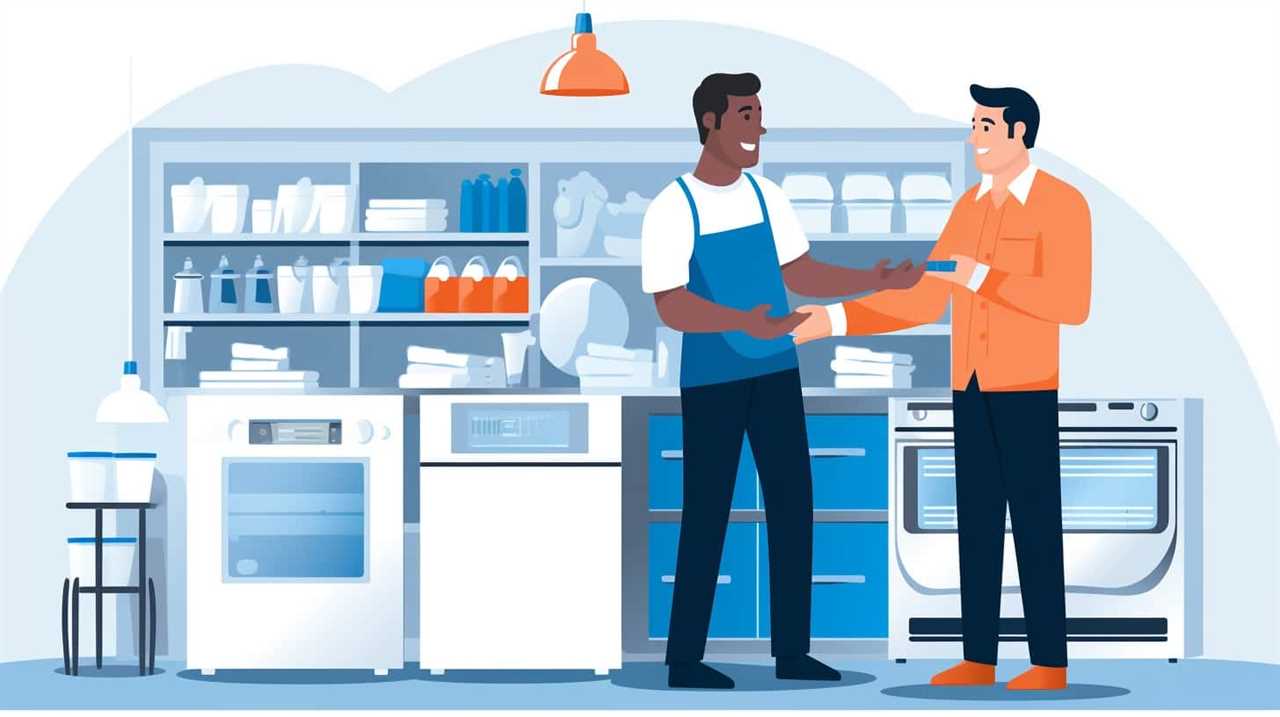
Minimizing Standby Power Consumption
Minimizing the standby power consumption of appliances is an essential step in promoting energy efficiency and reducing electricity costs. By implementing standby power reduction methods and power saving techniques, individuals can make a significant impact on their energy consumption.
Here are five strategies to help minimize standby power consumption:
- Use smart power strips that automatically shut off power to devices when not in use.
- Unplug appliances that are not frequently used or needed.
- Enable power-saving modes on devices such as computers and televisions.
- Choose energy-efficient appliances that have low standby power consumption.
- Invest in energy monitoring devices to track and manage power consumption.
Implementing these strategies not only reduces standby power consumption but also helps protect the environment and lower electricity bills. By adopting these power-saving techniques, individuals can contribute to a more sustainable future while enjoying the benefits of reduced energy costs.
Avoiding Damage During Power Outages
During power outages, it is imperative to promptly disconnect appliances to prevent potential damage. Power surges can occur when the electricity supply is restored, which can pose a significant risk to electronic devices. Unplugging appliances not only protects them from power surges but also helps to prevent damage caused by fluctuations in voltage when the power comes back on.

Electronic devices such as computers, televisions, and refrigerators are particularly vulnerable to these power fluctuations. By disconnecting appliances during power outages, you can ensure their safety and longevity. It is also advisable to use surge protectors for added protection against power surges.
Taking these precautions will help protect your valuable electronic devices and prevent the need for costly repairs or replacements.
Improving Overall Appliance Efficiency
One effective way to enhance overall appliance efficiency is by implementing energy-saving practices. By improving appliance performance and optimizing energy usage, you can reduce your electricity consumption and lower your utility bills.
Here are five energy-saving practices to consider:

- Regularly clean and maintain your appliances to ensure they are running efficiently.
- Utilize energy-efficient appliances that are designed to consume less power.
- Set your thermostat to an appropriate temperature to avoid unnecessary energy usage.
- Use power-saving modes on your electronics and appliances when they are not in use.
- Unplug devices and appliances when they are not being used to eliminate standby power consumption.
Frequently Asked Questions
How Can Unplugging Appliances Help Prevent Electrical Fires?
Unplugging appliances can prevent electrical fires by reducing energy consumption and extending the appliance lifespan. By disconnecting appliances when not in use, the risk of overheating and electrical malfunctions is minimized, ensuring safety and reducing the potential for fire hazards.
Will Unplugging Appliances Help Reduce My Electricity Bill?
Unplugging appliances can help reduce electricity bills by eliminating standby power consumption. Additionally, it promotes energy conservation and reduces the environmental impact associated with excessive energy usage, making it a sustainable and cost-effective practice.
What Is Standby Power Consumption and How Does Unplugging Appliances Minimize It?
Standby power consumption refers to the electricity consumed by appliances when they are not in use but still plugged in. Unplugging appliances minimizes this wasteful energy usage, promoting energy efficiency and reducing electricity costs.
Can Unplugging Appliances During Power Outages Help Avoid Damage to the Devices?
Unplugging appliances during power outages can help avoid damage to the devices by protecting them from power surges. This practice also contributes to lengthening the lifespan of the devices, ensuring their optimal performance and longevity.

How Does Unplugging Appliances Contribute to Improving Overall Appliance Efficiency?
Unplugging appliances can contribute to improving overall appliance efficiency by reducing energy waste and extending the lifespan of the devices. By eliminating standby power consumption and minimizing wear and tear, unplugging appliances when not in use can lead to significant energy savings and increased durability.
Conclusion
In conclusion, unplugging appliances is a simple yet powerful way to:
- Conserve energy
- Prevent fires
- Extend device lifespan
- Reduce electricity bills
- Minimize environmental impact
- Promote home safety
- Improve overall appliance efficiency.
It may seem like a small action, but the irony lies in the significant impact it can have on our lives and the world around us.
So, next time you’re done using an appliance, remember to unplug it and witness the hidden power of this seemingly insignificant act.



